Archives
-

Gender, Inequalities, and Health
Vol. 9 No. 2 (2024)This issue deals with a variety of topics related to «women and health», both during childbirth assistance and invisible female illnesses such as fibromyalgia. It also addresses situations of violence against women, such as obstetric violence or domestic violence, or aspects of vulnerability such as childcare in commercialized environments.
-
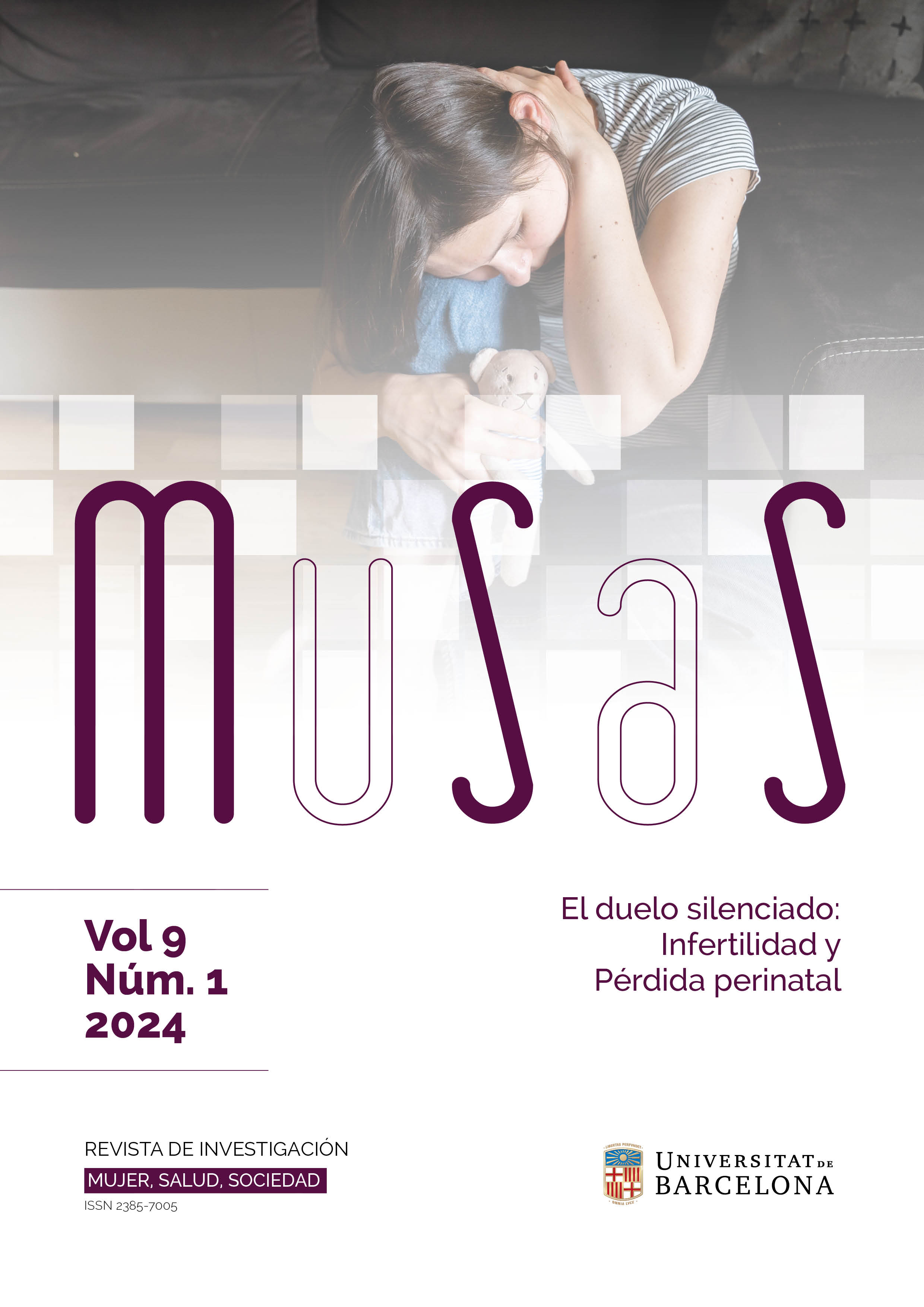
Silenced Grief: Infertility and Perinatal Loss
Vol. 9 No. 1 (2024)This issue addresses a current socially silenced issue: the grief that accompanies perinatal loss. The social imaginary thinks of pregnancy, childbirth and puerperium in positive terms, however, pregnancies are often unsuccessful or miscarried and do not go to term, may terminate spontaneously during the first months or the foetus may die late in gestation or even during or immediately after birth, leaving women and couples in a situation of grief that is often not acknowledged by society. Women may also decide to have an abortion for a variety of reasons, almost always a difficult and painful decision. In this issue, coordinated by Dr. Josefina Goberna, contributions are presented as a result of the research project PID2022-140179OB-I00, together with contributions from national and international authors from Spain and Latin America (Chile, Colombia and Uruguay) who complement us with valuable contributions on the subject.
-
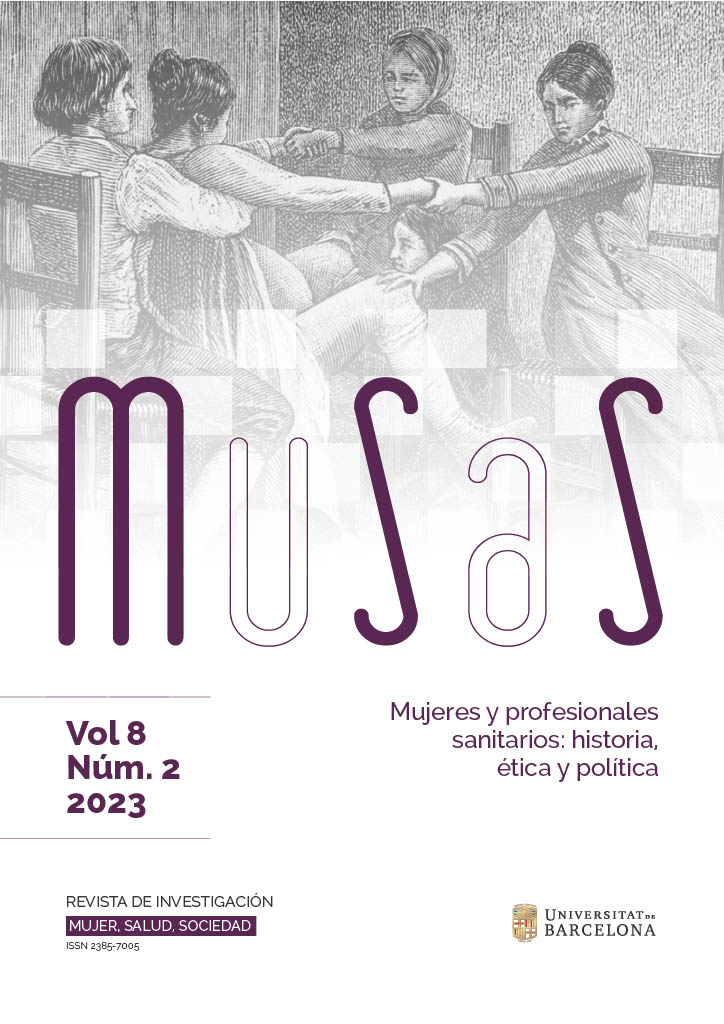
Women and health professionals: history, ethics and politics
Vol. 8 No. 2 (2023)This issue addresses from a wide and varied perspective aspects of the training of health professionals and their professional practice, as well as the subsequent impact on the diversity of women and problems that are addressed in obstetric and gynecological consultations, all within the scope of the care relationship, both from a historical, anthropological, ethical, political and social perspective.
-
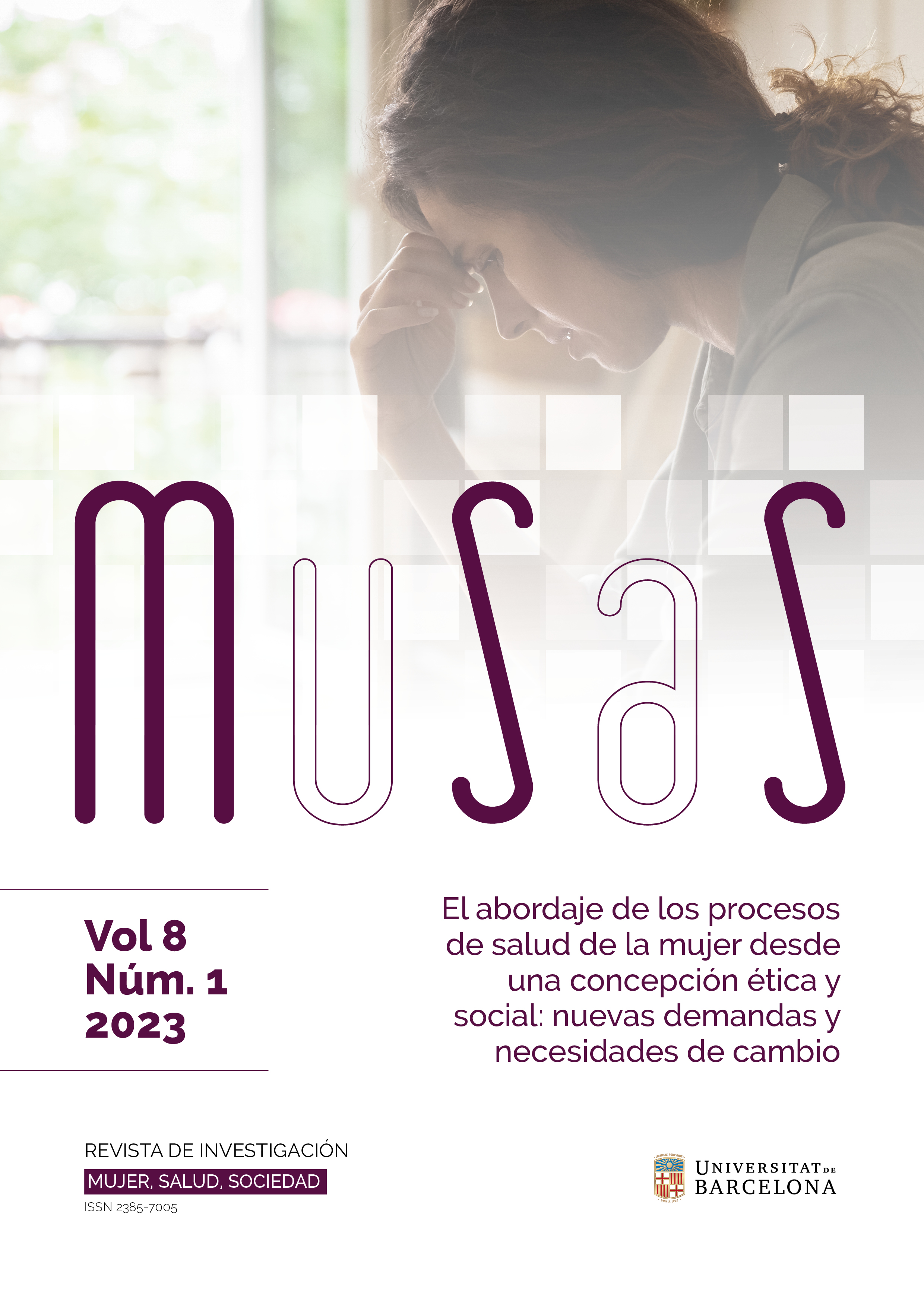
Approaching Women’s Health Processes from an Ethical and Social Perspective: New Demands and Needs for Change
Vol. 8 No. 1 (2023)New technologies and social changes affect all aspects of life, including women’s health, which is why constant changes are needed in the legislation that deals with them, as can be seen in this issue, which deals with aspects such as gamete donation, the reform of the abortion law or the need to update vaccination schedules.
However, this forward-looking approach should not make us forget the complex and often dramatic situations that exist beforehand and are lacking in attention: male violence, both in the recovery of the victims and in their detection during pregnancy, attention to the “silenced” perinatal losses or respect for natural childbirth care with its return to home care.
-
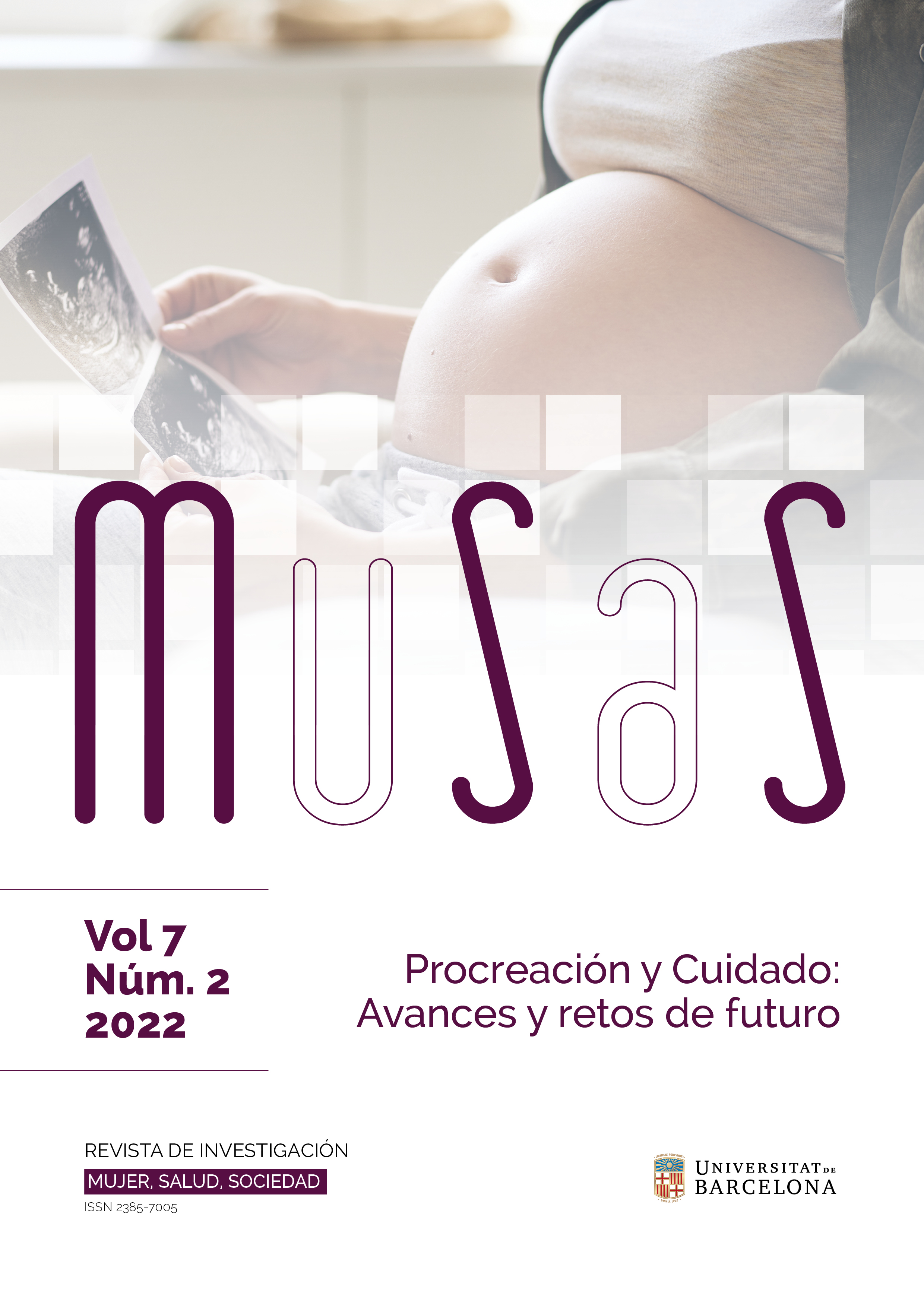
Procreation and Care: Advances and Future Challenges
Vol. 7 No. 2 (2022)With the outbreak of the Covid-19 pandemic, the health system had to adapt, as a matter of urgency, to the care of pregnancies and childbirths in a health environment collapsed by the care of Covid patients. After a few months, we find ourselves in a «new normality» or «post-pandemic», a scenario which some of the changes that affected our daily lives have remained in force. In this new context, «caring for life» takes on a new meaning and a need for rethinking. In this issue of Musas, coordinated by Josefina Goberna-Tricas, we address these changes both in the field of women in senior executive positions, as well as in those dedicated to the care of the elderly and vulnerable, and in health occupations, applying an intersectional approach. We conclude with a couple of training proposals that undoubtedly constitute a substantial contribution to the development and incorporation of new paradigms and models in professional practices in the field of healthcare.
-
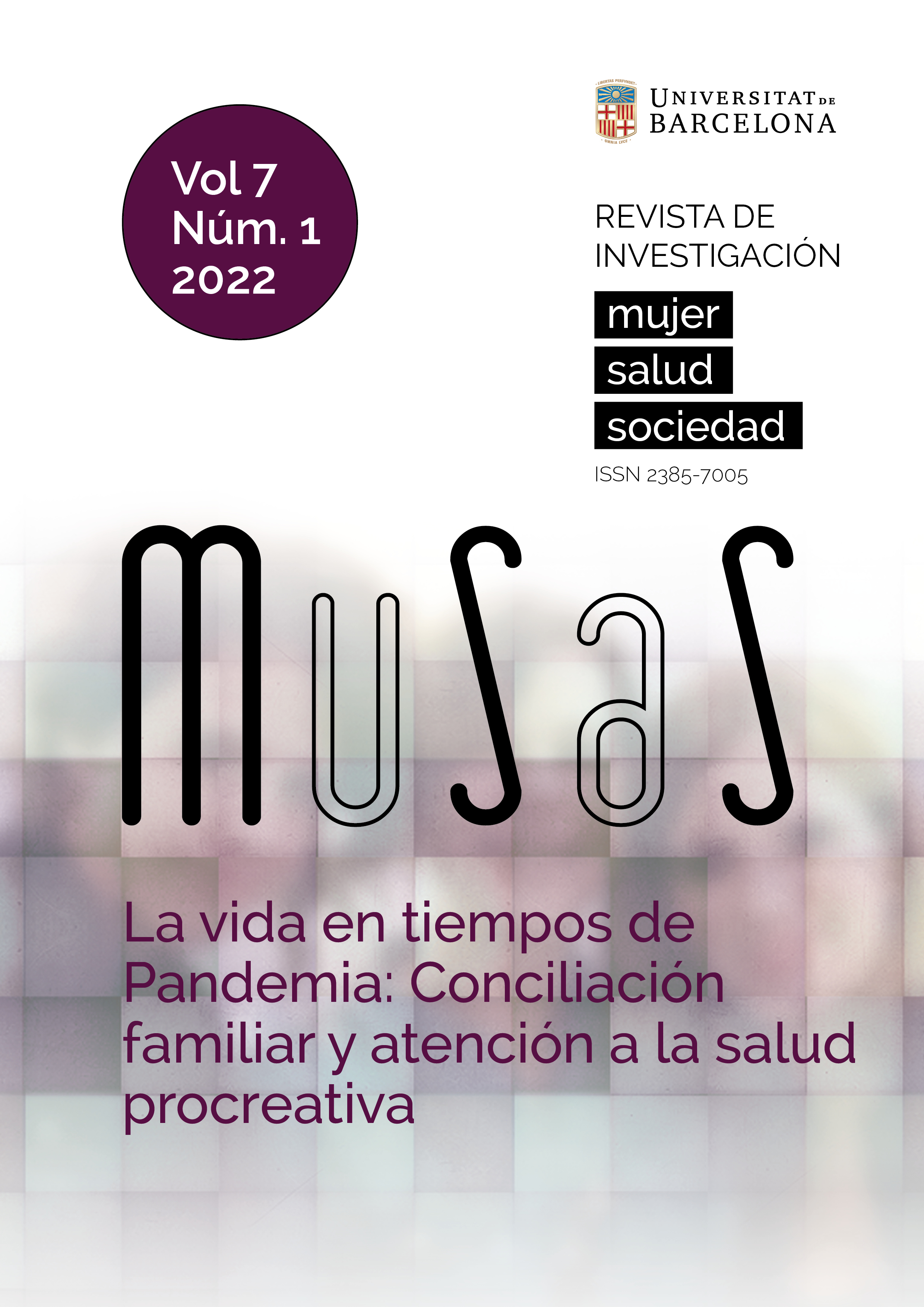
Life in Times of Pandemic: Work-Life Balance and Reproductive Healthcare
Vol. 7 No. 1 (2022)At the end of 2019, a new global situation appeared that has kept the planet in a state of alarm: the SARS-COV-2 threat. Profound changes have occurred in everything related to healthcare and life in general. This issue, coordinated by Josefina Goberna, of Musas presents papers that explore and analyze the experiences of women and health professionals during the first wave of the SARS-COV-2 pandemic. At the same time, it deals with other important issues that have stayed relevant during the pandemic, although they have not always been given the attention they required. Among these, we can highlight obstetric violence, care after pregnancy loss, gender bias in healthcare or the healthcare demands arising from the new family structures, such as the induction of breastfeeding in women who have not given birth.
-
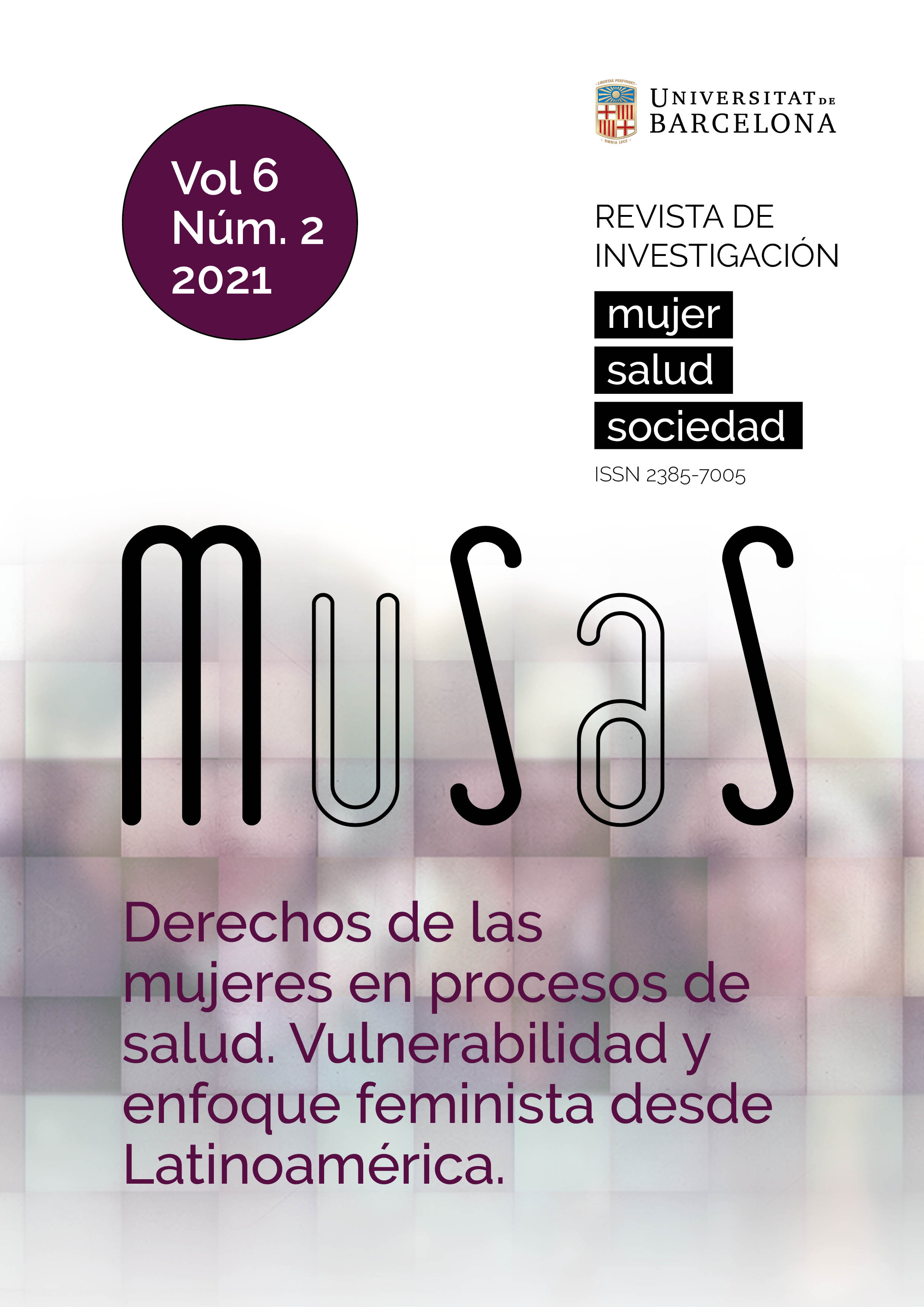
Women’s Health Processes: A feminist and rights-based approach from Latin America
Vol. 6 No. 2 (2021)This issue presents the work of eight authors who address women's health processes from a Latin American context, tackling health and disease situations from a feminist and situated rights approach. The topics covered address in a broad and comprehensive manner various aspects of sexual and procreative health: from giving birth or regulating fertility in pandemic times to home birth care or the vision from the users of social networks, without forgetting gender inequalities, informal care, the positioning of obstetric students before the legal termination of pregnancy and also considering a forgotten and silenced topic such as urinary incontinence in women.
-

Women and Vulnerability: Intersections and Disjunctions
Vol. 6 No. 1 (2021)The concepts of “vulnerability” and “woman” are inextricably linked. Even in the twenty-first century, the full autonomy that guarantees respect for their dignity as human beings and as women has not yet been fully achieved. Following the last issue, we continue to explore women’s vulnerability in various fields and contexts. While continuing to focus our attention on all those aspects related to reproductive health, in this issue, coordined by Josefina Goberna, we also delve into other areas such as the critical reading of art or gambling addiction in women.
-
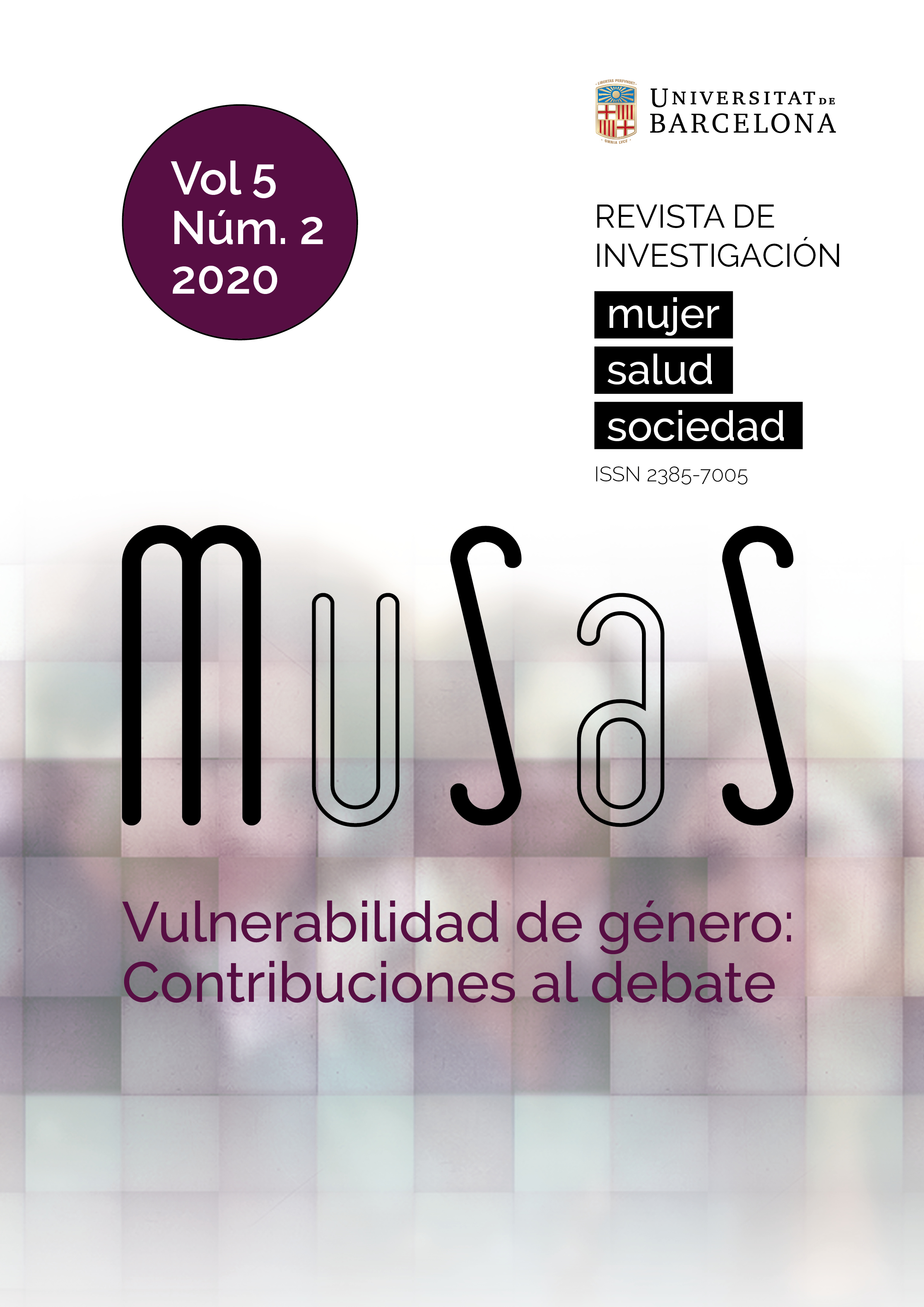
Approaches to Gender Vulnerability
Vol. 5 No. 2 (2020)In November 2019, the journal MUSAS Revista de Investigación en Mujer, Salud y Sociedad launched a call for papers for a monograph dedicated to the notion of vulnerability in its broadest sense. We received a broad response with paper proposals by authors from multiple academic backgrounds and geographical contexts. As a consequence, we will also dedicate the next issue to the notion of vulnerability in relation with the themes of the journal: women, health and society.
The coronavirus pandemic that has been affecting us globally since December 2019 has put vulnerability at the center of our priorities. It has shown us, in a dramatic way, how a disease can defeat us in the most unexpected way, posing important challenges to society in general and to the health system in particular. We will show that in this issue coordinated bay Josefina Goberna.
-
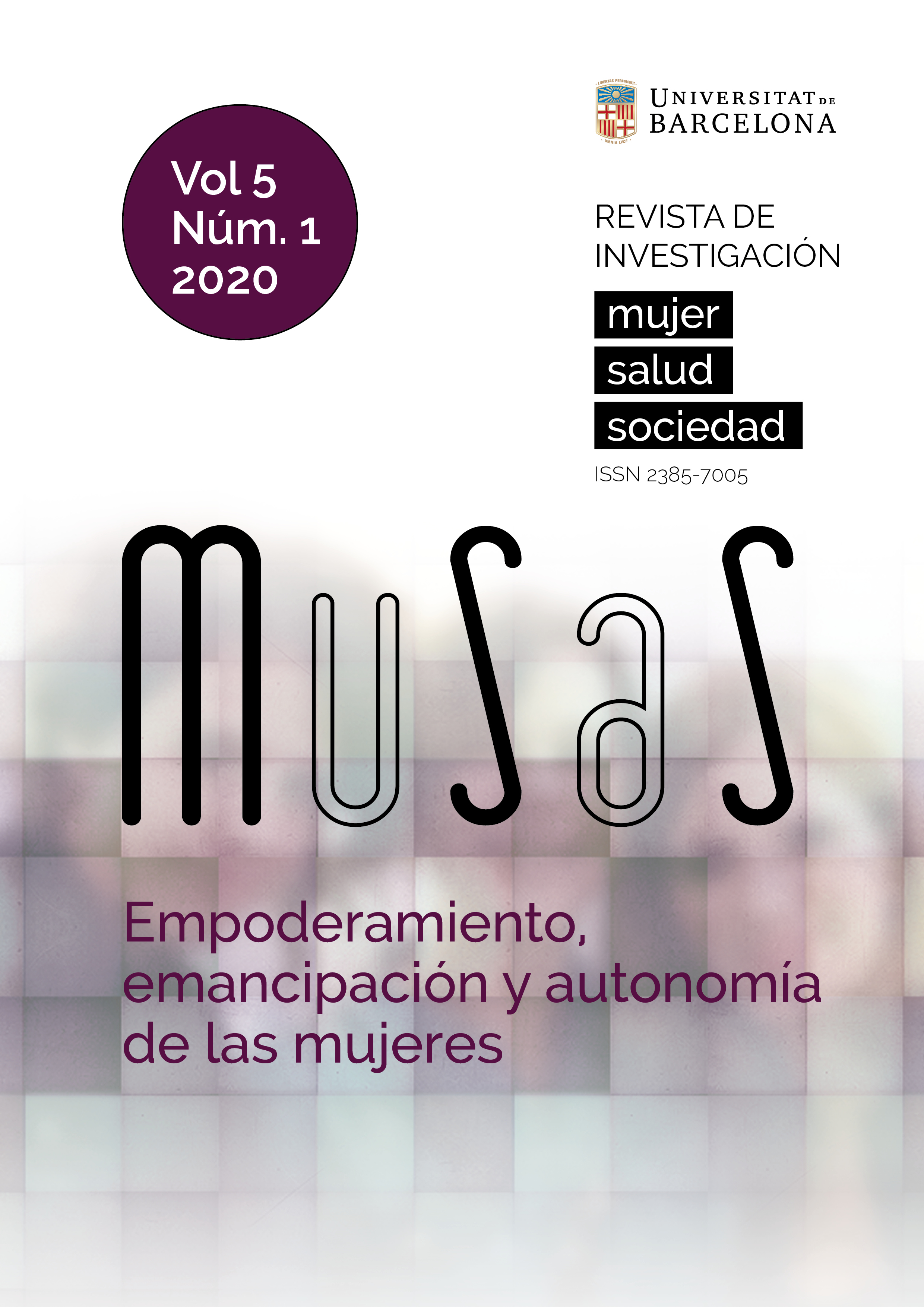
Women’s Empowerment, Emancipation and Autonomy
Vol. 5 No. 1 (2020)The notion of female empowerment is a complicated one, as the term does not have a unique and univocal meaning. Rather, it appears as a broad, unspecific and polysemic concept. In 1991, Schuler and Hashemi defined it as «the process whereby women increase their ability to establish their own lives and environments; an evolution in women’s awareness of themselves, of their status and their effectiveness in social interactions».
In this issue, coordinated by Josefina Goberna, we address, from a legal and pedagogical perspective, the potential for emancipation that women acquire throughout their lives. Additionally, we deal with how health care can contribute to said emancipation by respecting their informed choices and by giving support to those women that suffer violence.
-
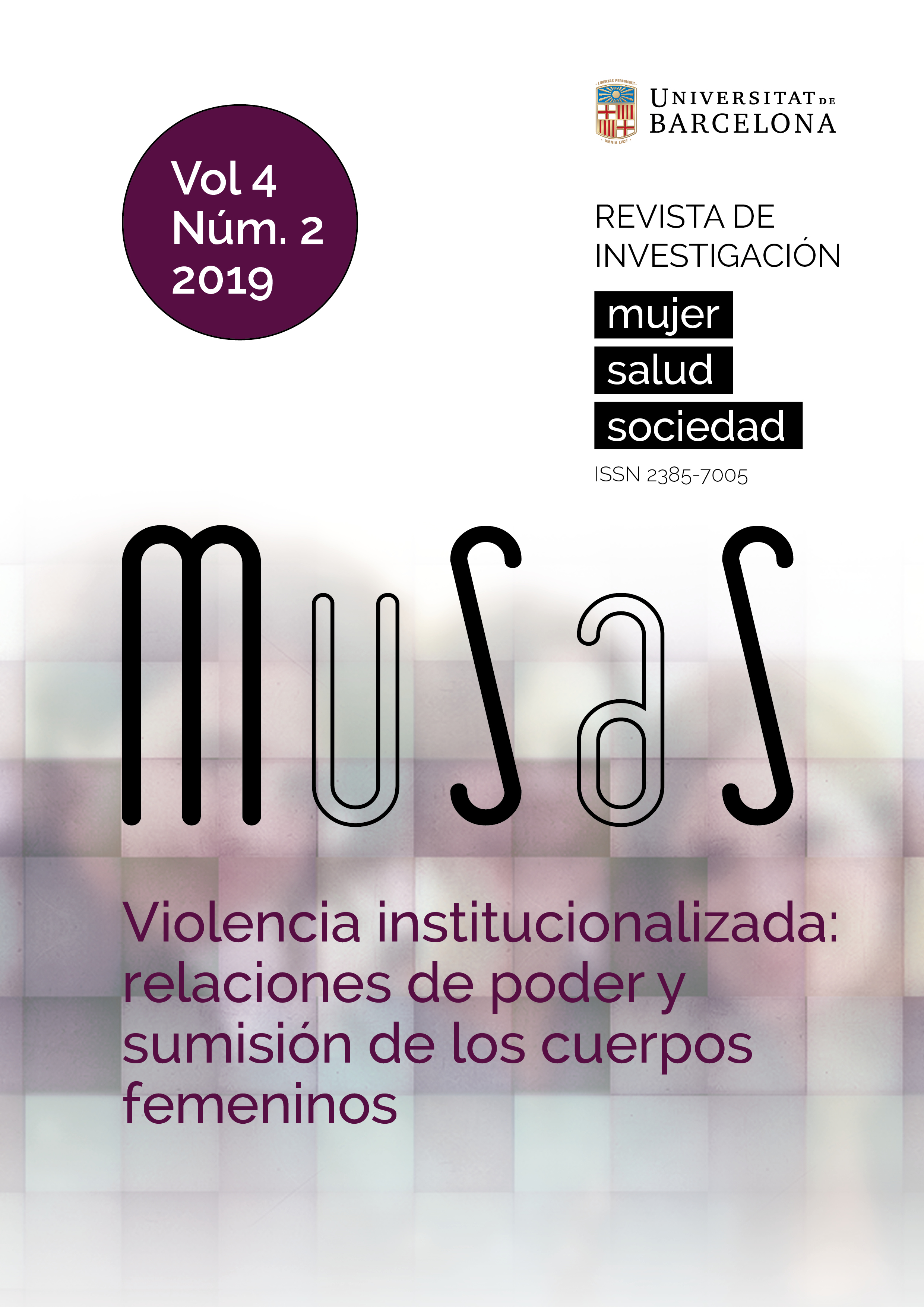
Institutionalized violence: power relations and submission of female bodies
Vol. 4 No. 2 (2019)This issue addresses the topic of violence against women during pregnancy. The two issues of MUSAS: Revista de investigación en mujer, salud y sociedad of 2019 have approached power relations exercised on women’s bodies during pregnancy and childbirth that seek the obedience and submission of female bodies, either as a violence exercised by the partner (gender violence) or as an institutionalized violence exercised by health institutions (obstetric violence). In addition, the editorial of this issue discusses another kind of violence: bullying on LGBTI youth.
-
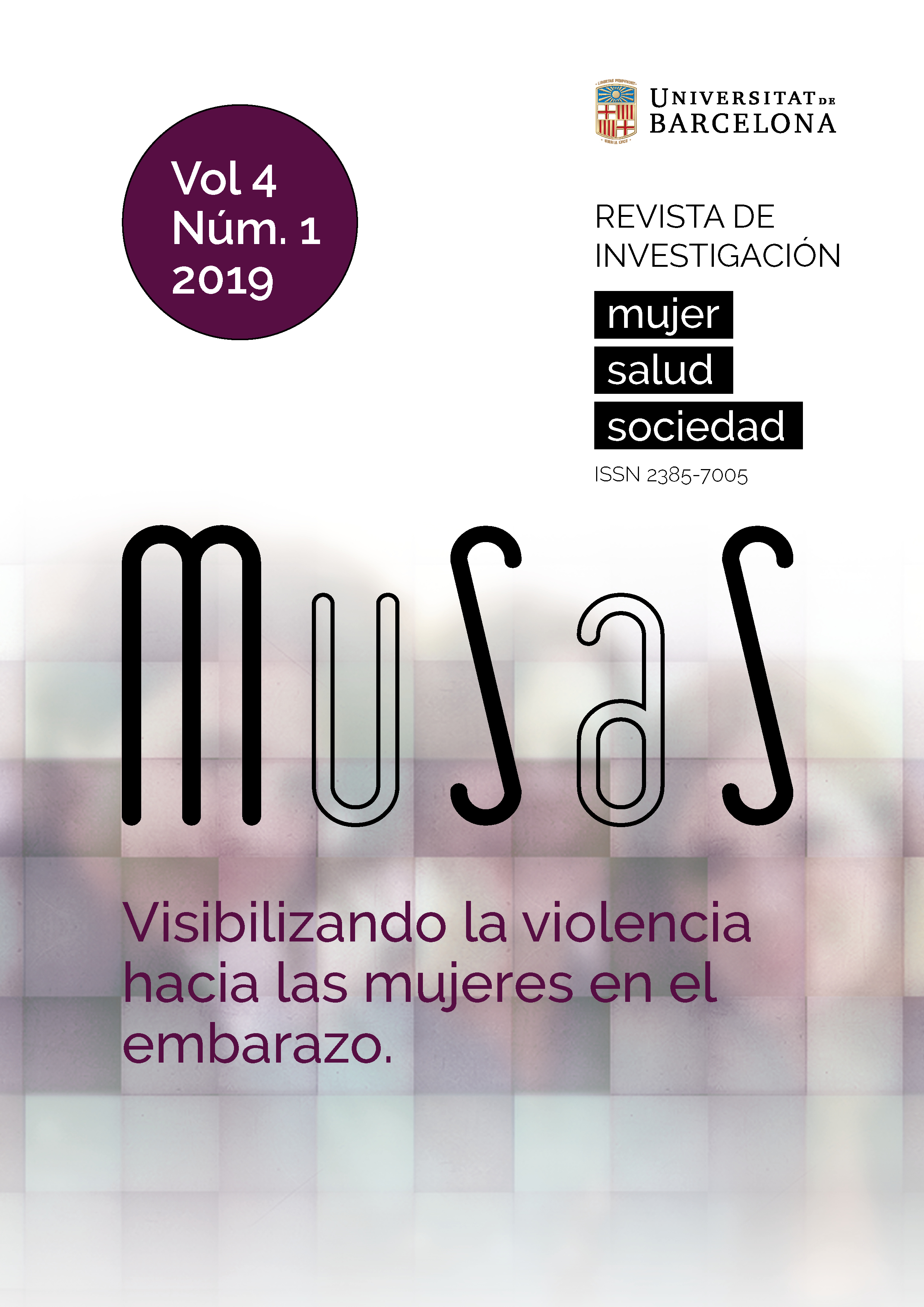
Making Visible the Violence toward Women during Pregnancy
Vol. 4 No. 1 (2019)Relating pregnancy and violence may seem contradictory, since, in the collective imagination, giving birth and pregnancy are usually associated with satisfaction and personal fulfillment. However, some studies indicate that up to 20% of women can suffer violence infringed by their partners during pregnancy, what is known as «obstetric violence». The articles presented in this issue derive from the papers presented in the «Third International Conference on Gender, Ethics and Care: Making visible the violence toward women during pregnancy», held in Barcelona in May 2018.
-
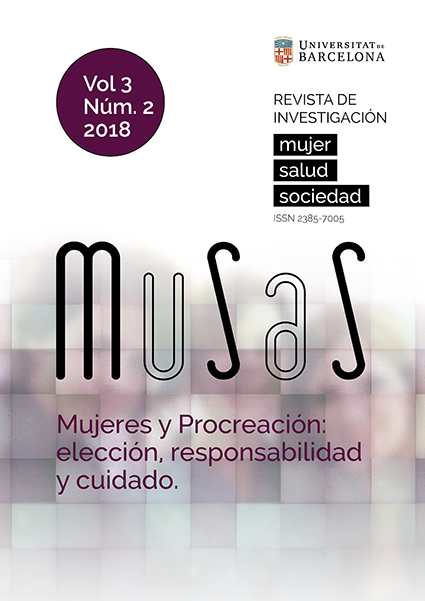
Women and Procreation: Choice, Responsibility and Care
Vol. 3 No. 2 (2018)Nowadays in the Western world having a child and therefore becoming a parent is though of as a conscious act of personal choice and fulfillment. Thus, the idea of «natural motherhood» is lost and, as a result, conceptualized in the social sphere. Conscious motherhood and fatherhood have become responsible motherhood and fatherhood. In this issue of the MUSAS: Journal of Research in Women, Health and Society, we address several aspects related to sexual education in adolescence in terms of gender equality, the role of training in the strengthening of maternity processes that are closer to the families, as well as some issues related to practices in the context of sexual and reproductive healthcare.
-
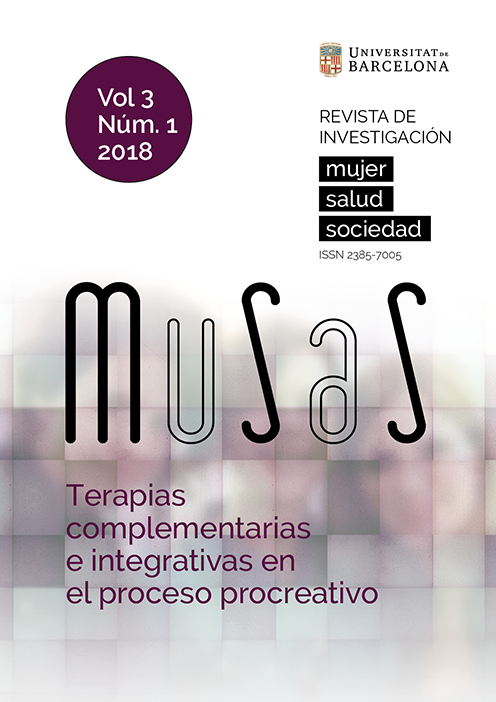
Complementary and Integrative Therapies in the Reproductive Process
Vol. 3 No. 1 (2018)The conceptual models of health and illness have changed throughout history. Indian Ayurveda or Chinese Traditional Medicine were based on the complex energy patterns that govern the Universe and their influence on human beings. In the Western world, the increasingly numerous Faculties of Medicine –founded in the Renaissance– monopolized the knowledge on health and illness, whereas women healers, which kept using integral care solutions based on natural medicine, were accused of witchcraft and burnt at the stake by the Inquisition. Although some western philosophers and scientists kept carrying out their research from a holistic perspective, considering body, mind and spirit simultaneously, this way of thinking started losing weight to chemical medicine and the separation between “mind” and “body”. During the 20th century, the allopathic health model completely outran the traditional healthcare therapies. However, from the 1960’s onwards, the disappointment of the population at the methods of allopathic medicine resulted in the revival of the concepts of “harmony, balance, integral health…”. The articles of this issue of the journal Musas: Reseach Journal of Women, Health and Society, coordinated by Maite Miranda García, discuss natural and complementary therapies which might be applied on women during the stages of the reproductive process.
-
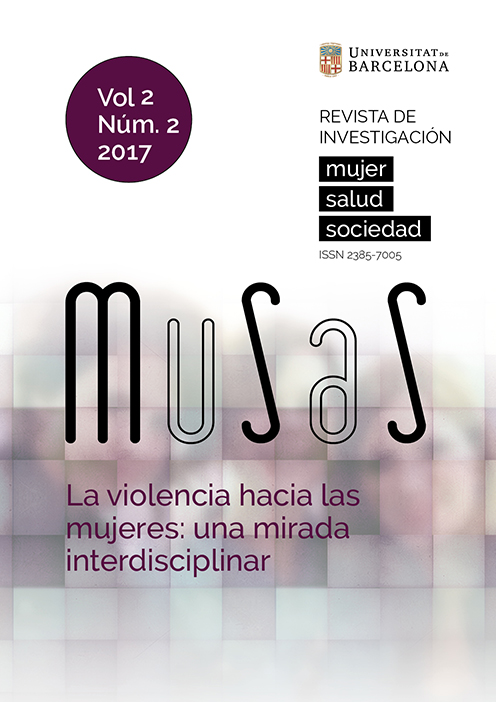
Violence against Women: An Interdisciplinary Approach
Vol. 2 No. 2 (2017)All discriminatory practices against women are linked to physical, psychological and/or symbolic violence. Today feminism is a multifaceted and plural reality, marked by a critique of dualisms (mind/body, nature/culture, man/woman, etc.) and the affirmation of a correspondence between all forms of oppression (sexism, racism, social oppression and the control of nature…), together with the feeling of having to survive in a patriarchal context defined by life-threatening conditions. This issue of MUSAS discusses all these topics dealing with the oppression and violence against women.
-
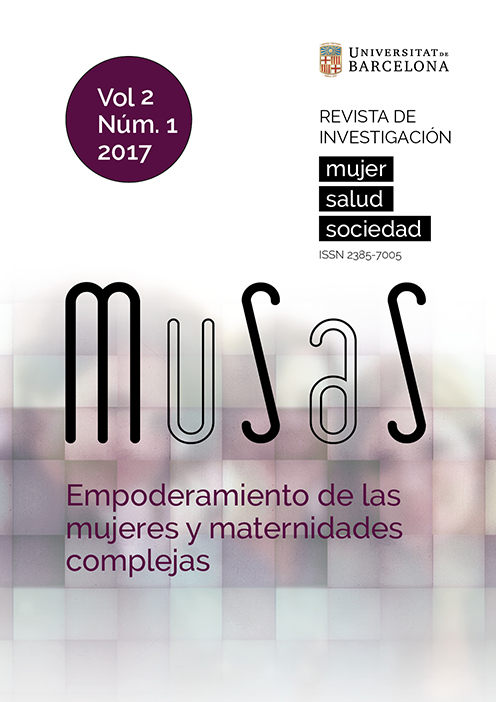
Empowering Women and Maternities in Complex Scenarios
Vol. 2 No. 1 (2017)In Western countries, maternity can be considered a secure and healthy process. Fortunately, mortality and morbidity rates are extremely low. Thus, both maternity and paternity become a life goal in individuals’ life narratives. However, sometimes we forget that, notwithstanding these good figures, the process of becoming a father or a mother is not entirely risk-free and some health problems may arise. This issue addresses several complex situations that might occur during maternity: anxiety in pregnant women with fetal growth restriction, postpartum depression, caesarean section, newborn malformations, as well as gynecologic pathologies. In these scenarios, the empowerment of women and an adequate preparation of pregnancy and childbirth become a matter of paramount importance. -
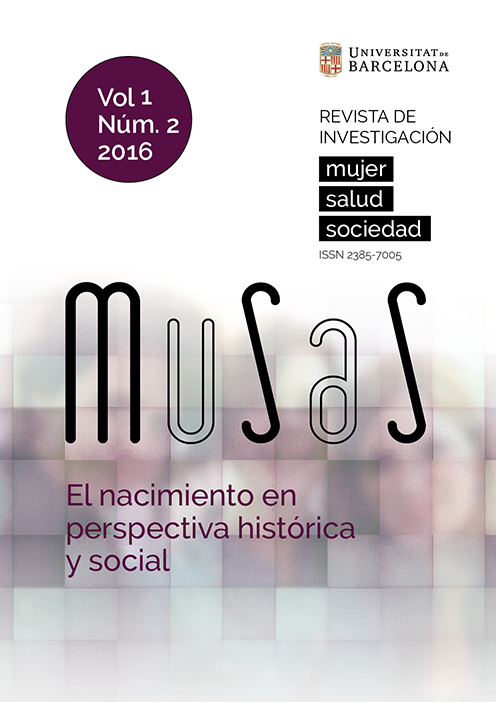
Chilbirth in Historical and Social Perspective
Vol. 1 No. 2 (2016)The years under the dictatorship of General Franco from 1939 to 1975 were a period that being a woman meant the subjugation to husbands or fathers. Women's education was segregated and always focused on subservience; the implementation and establishment of the so-called "Sección Femenina" occasioned that sewing and embroidery were more important that study other subjects that were considered masculine. The need for marital consent to perform some paperwork, the nonexistent legal capacity of women to decide on certain health issues or family planning were common aspects of everyday life of women.
These are just some examples of the innumerable list that filled the meaning of being a woman in this historical context; but none of these points list would find traces or hints of autonomy or freedom as gender, as women, or obviously not as parturient. Fortunately, today women can express their preferences, needs, desires and expectations about the process of labor and birth through its "birth plan -

Motherhood, technology and medical care
Vol. 1 No. 1 (2016)We would like to present a new academic journal: MUSAS "Journal of Research in Women, Health, and Society" by the eDOSIER research team: "Group of Studies in Women, Health and the Ethics of Medical Care". We have set a challenging and ambitious goal: we want to offer a platform for the dissemination of scientific and academic works that address an interdisciplinary vision of women and families’ health. Moreover, we welcome studies that assess and analyze the ethical and communicative relationships between health and society.





